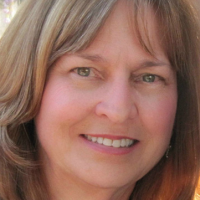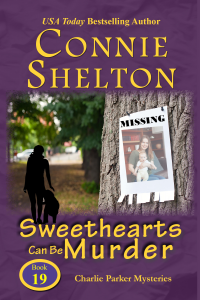Connie Shelton Interview Published on: 16, Apr 2018
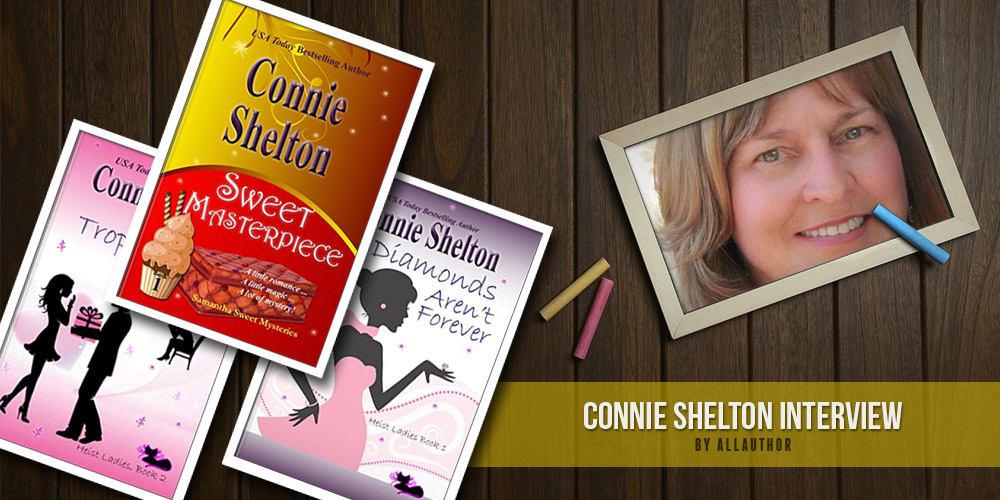 Do you hail from New Mexico or were you raised somewhere else? What does your ancestry look like?
Do you hail from New Mexico or were you raised somewhere else? What does your ancestry look like?
Yes, I am a third-generation New Mexican. My grandparents were ranchers here and my parents met in school, then raised the family in Albuquerque. Farther back, there are Scottish, English, German and Dutch ancestors. My sister has done more research on it than I have. One day, in retirement, I keep promising myself I'll look more thoroughly into those connections.
What first drew you in about the mystery genre? Do you remember the first idea you had for a book and did it ever see its completion?As a kid I was a completely avid reader, and my absolute hero was Nancy Drew. I devoured those stories and went on to read a lot of other mystery series of the time. My first book idea, oddly, was not a mystery. It was more of a rambling family saga thing. I did complete it, and the opening chapters of that book won third place in the Southwest Writers annual contest. Although it never found a publisher, completing the book and the contest win gave me the confidence to keep writing.
Why did you start teaching writing courses? How has that helped you grow yourself, as an author?About ten years into my own writing journey, I volunteered to critique the work of beginning writers in some writer's organizations I belonged to. I found it interesting to read their variety of stories and offer suggestions, and seeing the differences in their styles helped me expand my own horizons, as well. When the opportunity to teach for Long Ridge Writers Group came up, I applied and was accepted. I taught both short story and non-fiction formats for six years, then wanted to branch out beyond that particular curriculum and work with aspiring novelists. After I left Long Ridge, I developed my own Novel In A Weekend course, and it's been great fun to see a number of my former students go on to be published.
When it comes to your writing career, how do you keep it professional and steer away from the thinking that it's just another hobby you can get paid for?I was in business for fifteen years before I began writing, so I immediately understood there was a business side of publishing. As much as we love them as art, books are also a product that needs to make it from creator, to sales channel, to consumer. As soon as I had planned and begun writing my first mystery series, I also began learning how the publishing industry works. I suppose it never occurred to me to treat my writing as a hobby.
What are the biggest sacrifices you've had to make to become a bestselling author? Would you ever compromise the story you want to tell vs the story your audience wants to hear if it meant selling more books?Time. It takes a lot of time and dedication to write and publish consistently, so my house isn't always perfectly clean, my dogs have to nag me at meal times, and my husband--bless his soul--has learned there are days I'll be locked away with my computer. As far as story compromises, I don't feel that I've made many. I started out writing the characters and stories I wanted to, and I was lucky to find an audience who loved them. If I ever get the hankering to write something completely outside my current cozy-mystery genre, I would either do it under a pen name or be absolutely certain to let my fans know the new story is something new. I owe them that much. My readers mean everything to me, and it wouldn't be fair to go against the type of stories they want to read.
How do you prepare the storylines for your mysteries? Have you ever had to rewrite an entire ending because all the pieces didn't tie up?I start with an idea of the crime and which of my sleuths would be best suited to solve it. Then I flesh it out with the other characters---victim, villain, other suspects. I end up with about 5-6 pages of scene-by-scene development, which I use as an outline. I always have an ending in mind, but I keep it flexible. For instance, I did rework the ending of my first Charlie Parker book because I felt the original idea had become too predictable and readers would have figured it out too far in advance. I ran the new version past my husband, who is a master at knowing how a movie will end, and when it surprised him, I knew it would work.
What launched the idea for the first book in the Samantha Sweet Mysteries? What place was the inspiration for Samantha's pastry shop?One of my writing students actually gave me the premise when he told me "I break into houses for a living." Well, who wouldn't be intrigued? I told him I would borrow his job someday for a fictional character. Sam's love of baking stems from my own. In high school, I learned to decorate cakes and actually used to bake and decorate them for my friends and to earn a little extra money. Sam's pastry shop would be my ideal place to be in dessert heaven! As for the magical elements of the story, well, those came strictly from my imagination.
How do you decide which series to file certain mysteries under? what differentiates the Charlie Parker series from your Samantha Sweet books?I've mentioned some of the differences already---sometimes it's the nature of the crime itself that tells me which protagonist is best suited to solve it. Charlie is younger, lives in a big city, and travels quite a bit. Samantha lives in a small town, has close ties there with her business, so she doesn't leave the area much.
Who do you base most of your female characters off of? Who are some women that you look up to in your life?Most of my characters are compilations of people I've observed and roles I imagine for them. The only character who is really based on someone is the grandmotherly lady, Elsa Higgins, in the Charlie series---Elsa is very much like my own grandmother was.
What do you hope the Heist Ladies will do in terms of women empowerment? Who is your favourite lady detective (from your books or others)?I hadn't actually thought of women empowerment as a theme with the Heist Ladies, but you're right. They are five women with a variety of talents, women who come from diverse backgrounds and pool their resources to solve a crime. The underlying theme with them is always about helping someone who has been taken advantage of, and they will stick with the case until they see justice done. My favorite lady detectives ... well, of course, there's Nancy Drew. She embodied the spunky, brave girl I wanted to be. In more recent years, I've loved Kinsey Millhone in Sue Grafton's series. And I'm really into the Flavia De Luce series by Alan Bradley. She's a precocious 11-year-old without Nancy Drew's privileges, but with a love of chemistry and poisons. I love the way she doesn't let anyone or anything stop her from ferreting out the clues.
What does being a successful mean to you and how are you working towards that goal?I've let go of the idea that I need to be at the top of the New York Times list to be successful. It turns out that isn't important. I feel a huge measure of personal success every time a reader contacts me to say how much they loved one of my books. I read and answer all my email from fans, and I treasure the connections I've made with them.
Do you write to focus or to escape?Maybe a little of both. I love escaping into my story ideas, developing them, and putting the words down on paper. But all of that takes focus, too. Books don't just magically write themselves, and there are days when I really don't want to be at the keyboard but know I need to be.
What is your favourite thing for a reader or a fan to say about your work? If you could speak aloud to all your readers, what would you have to say to them?It really, really warms my heart when fans contact me to say how my books have impacted their lives. Maybe they were at a low point and needed a little magic or a little humor. Some have told me of their own losses and how sitting up at night with my book helped them get through it. I would love to say to them how much those words mean to me, how honored I am to have provided entertainment at the time they needed it, how much their love has brightened my day and made the hours at the computer worth it for me.
A third-generation New Mexican with Scottish, English, German and Dutch ancestors, author Connie Shelton is an eclectic mix. An avid reader as a kid, her absolute hero was Nancy Drew and spawned her love for mystery. After 10 years of writing, she voluntarily critiqued the work of beginning writers then went to teaching for the Long Ridge Writers Group for 6 years. A former business student, Connie understands the business side of publishing and thus never treats her writing as a hobby. The only character who is based on someone she knows is Elsa Higgins, based on her own grandmother. Rather than be at the top of the New York Times, Connie feels a huge measure of personal success every time a reader contacts her to say how much they loved one of her books.
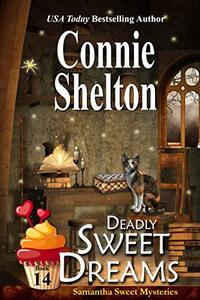 Deadly Sweet Dreams: A Sweet’s Sweets Bakery Mystery (Samantha Sweet Magical Cozy Mystery Series Book 14)
Genre: Crime Fiction, Mystery, Supernatural Suspense
Deadly Sweet Dreams: A Sweet’s Sweets Bakery Mystery (Samantha Sweet Magical Cozy Mystery Series Book 14)
Genre: Crime Fiction, Mystery, Supernatural Suspense
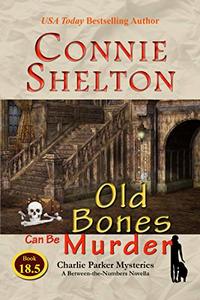 Old Bones Can Be Murder: Charlie Parker Mysteries: A Between-the-Numbers Novella (Charlie Parker Mysteries, Book 18.5)
Genre: Crime Fiction, Suspense, Mystery
Old Bones Can Be Murder: Charlie Parker Mysteries: A Between-the-Numbers Novella (Charlie Parker Mysteries, Book 18.5)
Genre: Crime Fiction, Suspense, Mystery
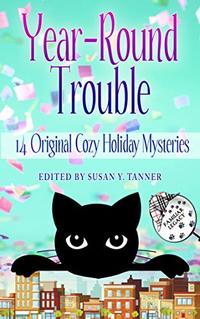 Year-Round Trouble: 14 Original Cozy Holiday Mysteries (Familiar Legacy)
Genre: Crime Fiction, Mystery, Supernatural Suspense
Year-Round Trouble: 14 Original Cozy Holiday Mysteries (Familiar Legacy)
Genre: Crime Fiction, Mystery, Supernatural Suspense
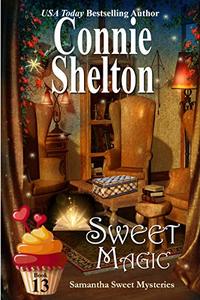 Sweet Magic: A Sweet's Sweets Bakery Mystery (Samantha Sweet Mysteries Book 13)
Genre: Crime Fiction, Suspense, Mystery
Sweet Magic: A Sweet's Sweets Bakery Mystery (Samantha Sweet Mysteries Book 13)
Genre: Crime Fiction, Suspense, Mystery
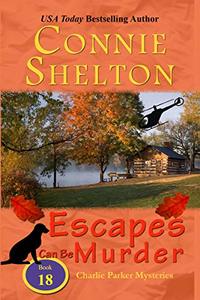 Escapes Can Be Murder: A Girl and Her Dog Cozy Mystery (Charlie Parker Mysteries Book 18)
Genre: Crime Fiction, Suspense, Mystery
Escapes Can Be Murder: A Girl and Her Dog Cozy Mystery (Charlie Parker Mysteries Book 18)
Genre: Crime Fiction, Suspense, Mystery
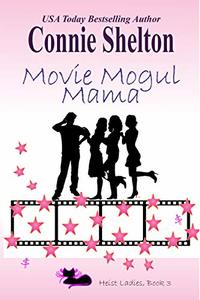 Movie Mogul Mama: Heist Ladies, Book 3 (Heist Ladies Caper Mysteries)
Genre: Crime Fiction, Suspense, Mystery
Movie Mogul Mama: Heist Ladies, Book 3 (Heist Ladies Caper Mysteries)
Genre: Crime Fiction, Suspense, Mystery
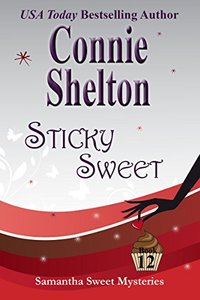 Sticky Sweet: A Sweet’s Sweets Bakery Mystery (Samantha Sweet Magical Cozy Mystery Series Book 12)
Genre: Crime Fiction, Suspense, Mystery, Supernatural Suspense
Sticky Sweet: A Sweet’s Sweets Bakery Mystery (Samantha Sweet Magical Cozy Mystery Series Book 12)
Genre: Crime Fiction, Suspense, Mystery, Supernatural Suspense
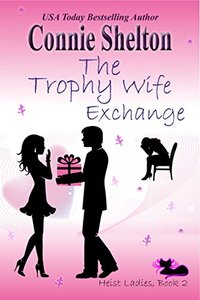 The Trophy Wife Exchange: Heist Ladies, Book 2 (Heist Ladies Caper Mysteries)
Genre: Thriller, Suspense, Mystery
The Trophy Wife Exchange: Heist Ladies, Book 2 (Heist Ladies Caper Mysteries)
Genre: Thriller, Suspense, Mystery
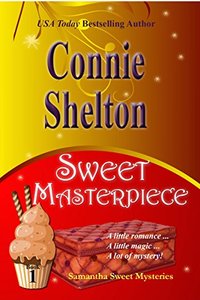 Sweet Masterpiece: A Sweet’s Sweets Bakery Mystery (Samantha Sweet Mysteries Book 1)
Genre: Crime Fiction, Suspense, Mystery, Romantic Suspense, Paranormal Romance
Sweet Masterpiece: A Sweet’s Sweets Bakery Mystery (Samantha Sweet Mysteries Book 1)
Genre: Crime Fiction, Suspense, Mystery, Romantic Suspense, Paranormal Romance
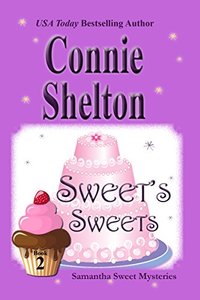 Sweet's Sweets: A Sweet’s Sweets Bakery Mystery (Samantha Sweet Mysteries Book 2)
Genre: Crime Fiction, Suspense, Mystery, Romantic Suspense
Sweet's Sweets: A Sweet’s Sweets Bakery Mystery (Samantha Sweet Mysteries Book 2)
Genre: Crime Fiction, Suspense, Mystery, Romantic Suspense
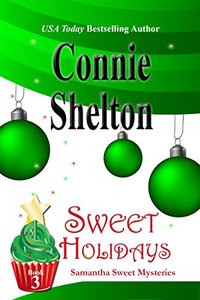 Sweet Holidays: A Sweet’s Sweets Bakery Mystery (Samantha Sweet Mysteries Book 3)
Genre: Crime Fiction, Suspense, Mystery, Romantic Suspense, Paranormal Romance
Sweet Holidays: A Sweet’s Sweets Bakery Mystery (Samantha Sweet Mysteries Book 3)
Genre: Crime Fiction, Suspense, Mystery, Romantic Suspense, Paranormal Romance
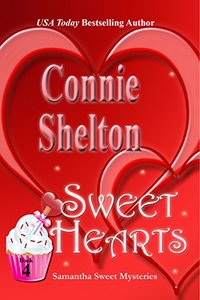 Sweet Hearts: A Sweet’s Sweets Bakery Mystery (Samantha Sweet Mysteries Book 4)
Genre: Crime Fiction, Suspense, Mystery, Romantic Suspense, Paranormal Romance
Sweet Hearts: A Sweet’s Sweets Bakery Mystery (Samantha Sweet Mysteries Book 4)
Genre: Crime Fiction, Suspense, Mystery, Romantic Suspense, Paranormal Romance
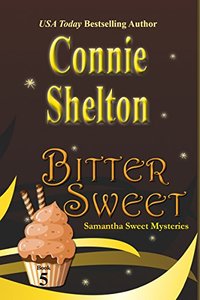 Bitter Sweet: A Sweet’s Sweets Bakery Mystery (Samantha Sweet Mysteries Book 5)
Genre: Crime Fiction, Suspense, Mystery
Bitter Sweet: A Sweet’s Sweets Bakery Mystery (Samantha Sweet Mysteries Book 5)
Genre: Crime Fiction, Suspense, Mystery
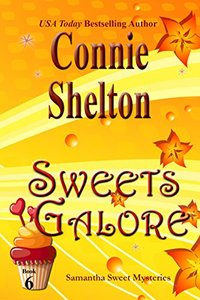 Sweets Galore: A Sweet’s Sweets Bakery Mystery (Samantha Sweet Mysteries Book 6)
Genre: Crime Fiction, Suspense, Mystery, Romantic Suspense, Paranormal Romance
Sweets Galore: A Sweet’s Sweets Bakery Mystery (Samantha Sweet Mysteries Book 6)
Genre: Crime Fiction, Suspense, Mystery, Romantic Suspense, Paranormal Romance
 Sweets, Begorra: A Sweet’s Sweets Bakery Mystery (Samantha Sweet Mysteries Book 7)
Genre: Crime Fiction, Suspense, Mystery
Sweets, Begorra: A Sweet’s Sweets Bakery Mystery (Samantha Sweet Mysteries Book 7)
Genre: Crime Fiction, Suspense, Mystery
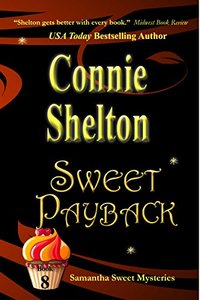 Sweet Payback: A Sweet’s Sweets Bakery Mystery (Samantha Sweet Mysteries Book 8)
Genre: Crime Fiction, Suspense, Mystery
Sweet Payback: A Sweet’s Sweets Bakery Mystery (Samantha Sweet Mysteries Book 8)
Genre: Crime Fiction, Suspense, Mystery
 Sweet Somethings: A Sweet’s Sweets Bakery Mystery (Samantha Sweet Mysteries Book 9)
Genre: Crime Fiction, Suspense, Mystery
Sweet Somethings: A Sweet’s Sweets Bakery Mystery (Samantha Sweet Mysteries Book 9)
Genre: Crime Fiction, Suspense, Mystery
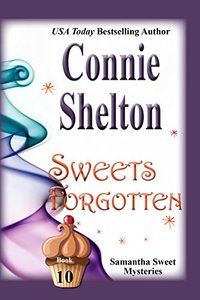 Sweets Forgotten: A Sweet’s Sweets Bakery Mystery (Samantha Sweet Magical Cozy Mystery Series Book 10)
Genre: Crime Fiction, Suspense, Mystery
Sweets Forgotten: A Sweet’s Sweets Bakery Mystery (Samantha Sweet Magical Cozy Mystery Series Book 10)
Genre: Crime Fiction, Suspense, Mystery
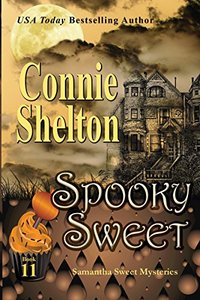 Spooky Sweet: A Sweet’s Sweets Bakery Mystery (Samantha Sweet Magical Cozy Mystery Series Book 11)
Genre: Crime Fiction, Suspense, Mystery
Spooky Sweet: A Sweet’s Sweets Bakery Mystery (Samantha Sweet Magical Cozy Mystery Series Book 11)
Genre: Crime Fiction, Suspense, Mystery
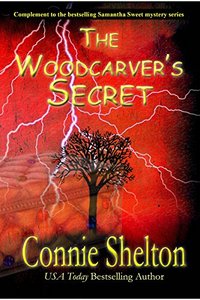 The Woodcarver's Secret: Complement to the bestselling Samantha Sweet mystery series (Samantha Sweet Magical Cozy Mystery Series)
Genre: Crime Fiction, Suspense, Mystery, Historical Fiction
The Woodcarver's Secret: Complement to the bestselling Samantha Sweet mystery series (Samantha Sweet Magical Cozy Mystery Series)
Genre: Crime Fiction, Suspense, Mystery, Historical Fiction
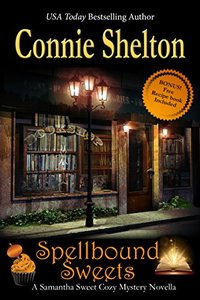 Spellbound Sweets: A Samantha Sweet Halloween Novella (Samantha Sweet Magical Cozy Mystery Series)
Genre: Crime Fiction, Suspense, Mystery
Spellbound Sweets: A Samantha Sweet Halloween Novella (Samantha Sweet Magical Cozy Mystery Series)
Genre: Crime Fiction, Suspense, Mystery
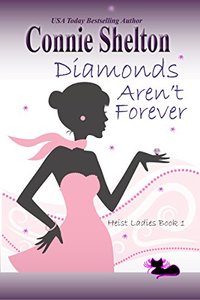 Diamonds Aren't Forever: Heist Ladies, Book 1 (Heist Ladies Caper Mysteries)
Genre: Crime Fiction, Mystery, Women's Fiction
Diamonds Aren't Forever: Heist Ladies, Book 1 (Heist Ladies Caper Mysteries)
Genre: Crime Fiction, Mystery, Women's Fiction
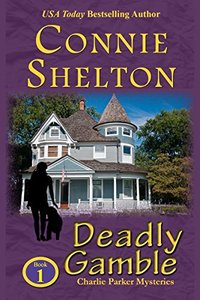 Deadly Gamble: A Girl and Her Dog Cozy Mystery (Charlie Parker Mystery Book 1)
Genre: Crime Fiction, Suspense, Mystery
Deadly Gamble: A Girl and Her Dog Cozy Mystery (Charlie Parker Mystery Book 1)
Genre: Crime Fiction, Suspense, Mystery
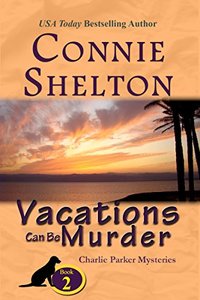 Vacations Can Be Murder: A Girl and Her Dog Cozy Mystery (Charlie Parker Mystery Book 2)
Genre: Crime Fiction, Suspense, Mystery, Romantic Suspense, Women's Fiction
Vacations Can Be Murder: A Girl and Her Dog Cozy Mystery (Charlie Parker Mystery Book 2)
Genre: Crime Fiction, Suspense, Mystery, Romantic Suspense, Women's Fiction
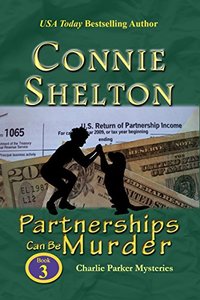 Partnerships Can Be Murder: A Girl and Her Dog Cozy Mystery (Charlie Parker Mystery Book 3)
Genre: Crime Fiction, Suspense, Mystery
Partnerships Can Be Murder: A Girl and Her Dog Cozy Mystery (Charlie Parker Mystery Book 3)
Genre: Crime Fiction, Suspense, Mystery
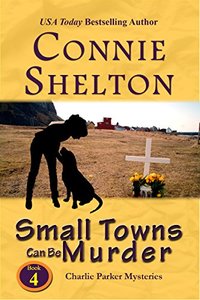 Small Towns Can Be Murder: A Girl and Her Dog Cozy Mystery (Charlie Parker Mystery Book 4)
Genre: Crime Fiction, Suspense, Mystery, Romantic Suspense
Small Towns Can Be Murder: A Girl and Her Dog Cozy Mystery (Charlie Parker Mystery Book 4)
Genre: Crime Fiction, Suspense, Mystery, Romantic Suspense
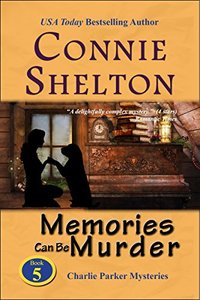 Memories Can Be Murder: A Girl and Her Dog Cozy Mystery (Charlie Parker Mystery Book 5)
Genre: Crime Fiction, Suspense, Mystery
Memories Can Be Murder: A Girl and Her Dog Cozy Mystery (Charlie Parker Mystery Book 5)
Genre: Crime Fiction, Suspense, Mystery
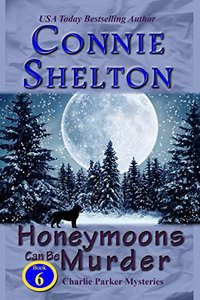 Honeymoons Can Be Murder: A Girl and Her Dog Cozy Mystery (Charlie Parker Mystery Book 6)
Genre: Crime Fiction, Suspense, Mystery
Honeymoons Can Be Murder: A Girl and Her Dog Cozy Mystery (Charlie Parker Mystery Book 6)
Genre: Crime Fiction, Suspense, Mystery
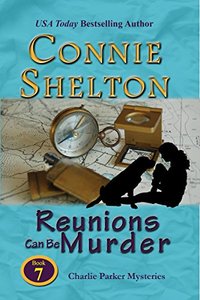 Reunions Can Be Murder: A Girl and Her Dog Cozy Mystery (Charlie Parker Mystery Book 7)
Genre: Crime Fiction, Suspense, Mystery
Reunions Can Be Murder: A Girl and Her Dog Cozy Mystery (Charlie Parker Mystery Book 7)
Genre: Crime Fiction, Suspense, Mystery
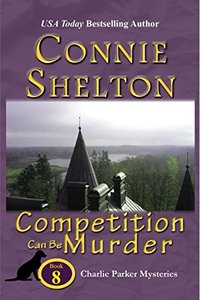 Competition Can Be Murder: A Girl and Her Dog Cozy Mystery (Charlie Parker Mystery Book 8)
Genre: Crime Fiction, Suspense, Mystery
Competition Can Be Murder: A Girl and Her Dog Cozy Mystery (Charlie Parker Mystery Book 8)
Genre: Crime Fiction, Suspense, Mystery
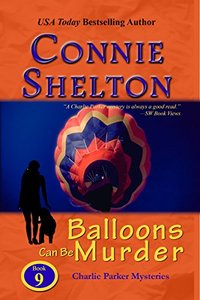 Balloons Can Be Murder: A Girl and Her Dog Cozy Mystery (Charlie Parker Mystery Book 9)
Genre: Crime Fiction, Suspense, Mystery
Balloons Can Be Murder: A Girl and Her Dog Cozy Mystery (Charlie Parker Mystery Book 9)
Genre: Crime Fiction, Suspense, Mystery
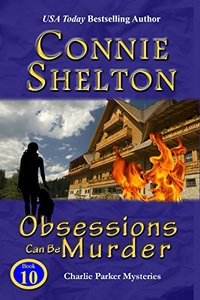 Obsessions Can Be Murder: A Girl and Her Dog Cozy Mystery (Charlie Parker Mystery Book 10)
Genre: Crime Fiction, Suspense, Mystery, Romantic Suspense
Obsessions Can Be Murder: A Girl and Her Dog Cozy Mystery (Charlie Parker Mystery Book 10)
Genre: Crime Fiction, Suspense, Mystery, Romantic Suspense
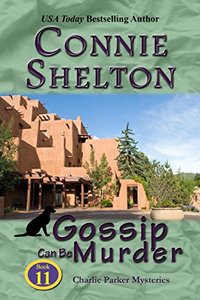 Gossip Can Be Murder: A Girl and Her Dog Cozy Mystery (Charlie Parker Mystery Book 11)
Genre: Crime Fiction, Suspense, Mystery
Gossip Can Be Murder: A Girl and Her Dog Cozy Mystery (Charlie Parker Mystery Book 11)
Genre: Crime Fiction, Suspense, Mystery
 Stardom Can Be Murder: A Girl and Her Dog Cozy Mystery (Charlie Parker Mystery Book 12)
Genre: Crime Fiction, Thriller, Suspense, Mystery
Stardom Can Be Murder: A Girl and Her Dog Cozy Mystery (Charlie Parker Mystery Book 12)
Genre: Crime Fiction, Thriller, Suspense, Mystery
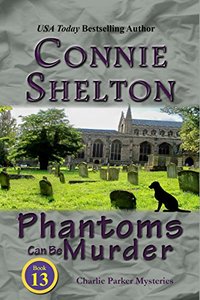 Phantoms Can Be Murder: A Girl and Her Dog Cozy Mystery (Charlie Parker Mystery Book 13)
Genre: Crime Fiction, Suspense, Mystery
Phantoms Can Be Murder: A Girl and Her Dog Cozy Mystery (Charlie Parker Mystery Book 13)
Genre: Crime Fiction, Suspense, Mystery
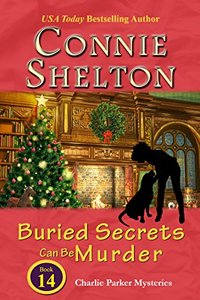 Buried Secrets Can Be Murder: A Girl and Her Dog Cozy Mystery (Charlie Parker Mystery Book 14)
Genre: Crime Fiction, Suspense, Mystery
Buried Secrets Can Be Murder: A Girl and Her Dog Cozy Mystery (Charlie Parker Mystery Book 14)
Genre: Crime Fiction, Suspense, Mystery
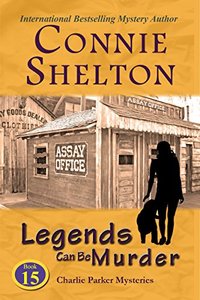 Legends Can Be Murder: A Girl and Her Dog Cozy Mystery (Charlie Parker Mystery Book 15)
Genre: Crime Fiction, Suspense, Mystery
Legends Can Be Murder: A Girl and Her Dog Cozy Mystery (Charlie Parker Mystery Book 15)
Genre: Crime Fiction, Suspense, Mystery
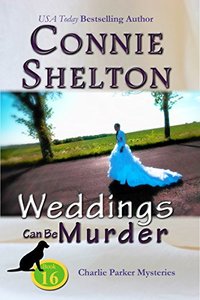 Weddings Can Be Murder: A Girl and Her Dog Cozy Mystery (Charlie Parker New Mexico Mystery Series Book 16)
Genre: Crime Fiction, Suspense, Mystery
Weddings Can Be Murder: A Girl and Her Dog Cozy Mystery (Charlie Parker New Mexico Mystery Series Book 16)
Genre: Crime Fiction, Suspense, Mystery
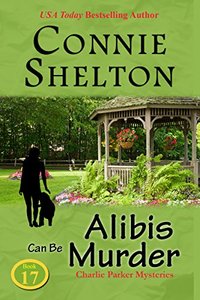 Alibis Can Be Murder: A Girl and Her Dog Cozy Mystery (Charlie Parker Mysteries Book 17)
Genre: Crime Fiction, Suspense, Mystery
Alibis Can Be Murder: A Girl and Her Dog Cozy Mystery (Charlie Parker Mysteries Book 17)
Genre: Crime Fiction, Suspense, Mystery
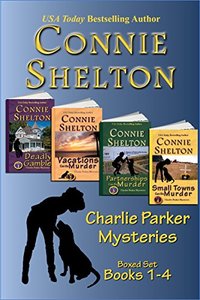 Charlie Parker Mysteries Boxed Set (Books 1-4): The Girl and Her Dog Cozy Mysteries (Charlie Parker New Mexico Mystery Series Book 0)
Genre: Crime Fiction, Suspense, Mystery, Romantic Suspense
Charlie Parker Mysteries Boxed Set (Books 1-4): The Girl and Her Dog Cozy Mysteries (Charlie Parker New Mexico Mystery Series Book 0)
Genre: Crime Fiction, Suspense, Mystery, Romantic Suspense
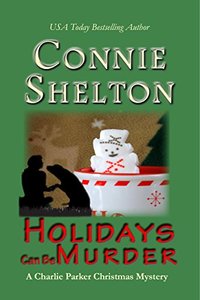 Holidays Can Be Murder: A Charlie Parker Christmas Mystery (Charlie Parker Mystery)
Genre: Crime Fiction, Suspense, Mystery
Holidays Can Be Murder: A Charlie Parker Christmas Mystery (Charlie Parker Mystery)
Genre: Crime Fiction, Suspense, Mystery
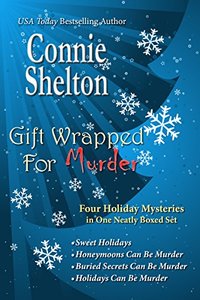 Gift Wrapped For Murder: Four Holiday Mysteries in One Neatly Boxed Set (Charlie Parker Mystery Series)
Genre: Crime Fiction, Suspense, Mystery
Gift Wrapped For Murder: Four Holiday Mysteries in One Neatly Boxed Set (Charlie Parker Mystery Series)
Genre: Crime Fiction, Suspense, Mystery
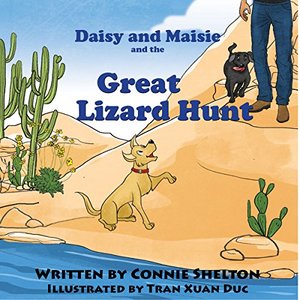 Daisy and Maisie and The Great Lizard Hunt: Early reader bedtime stories with values for kids (Adventures of Daisy and Maisie Book 1)
Genre: Children's
Daisy and Maisie and The Great Lizard Hunt: Early reader bedtime stories with values for kids (Adventures of Daisy and Maisie Book 1)
Genre: Children's
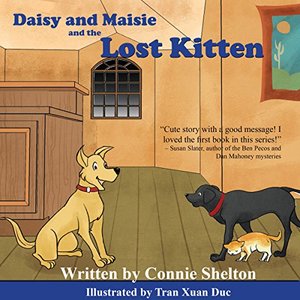 Daisy and Maisie and the Lost Kitten: Early reader bedtime stories with values for kids (Adventures of Daisy and Maisie Book 2)
Genre: Children's
Daisy and Maisie and the Lost Kitten: Early reader bedtime stories with values for kids (Adventures of Daisy and Maisie Book 2)
Genre: Children's
 Show, Don't Tell: How to Fix the #1 Problem in Your Fiction Writing--Immediately!
Genre: Advice & How To, General Nonfiction
Show, Don't Tell: How to Fix the #1 Problem in Your Fiction Writing--Immediately!
Genre: Advice & How To, General Nonfiction
